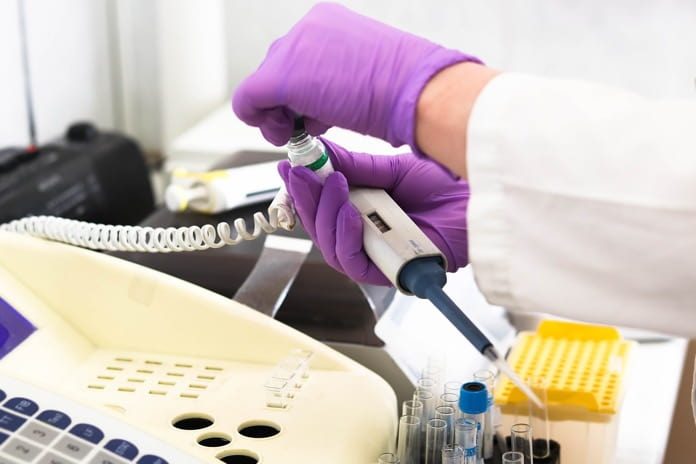A new study published in Nature Medicine has shown a way to decode the fate of precancerous lung lesions in the development of invasive lung cancer.
Lung cancer is the deadliest form of cancer worldwide, causing an estimated 1.8 million deaths globally in 2018. The disease develops when abnormal cancer cells in the lungs begin to multiply and form tumours. As cancerous tumours grow, they start to damage nearby tissue, and the cancer can metastasize (spread) to other parts of the body.
Pre-cancerous lesions appear in the airway before tumours grow larger
Although abnormal cell growth can cause cancer to develop, not all tumours become cancerous. In the early stages of tumour growth, pre-cancerous lesions are found in the airway. Nearly half of these lesions will progress into invasive cancer, but the other half remain benign and are harmless.
Currently, cancerous lesions are detected by analyzing lung tissue in the lab. However, both cancerous and non-cancerous samples are identical under the microscope—making it difficult to distinguish which will develop into invasive cancer. This makes lung cancer difficult to manage and treat.
Can we distinguish between invasive non-invasive lesions?
In a recent study published in Nature Medicine, researchers from University College London have discovered a way to differentiate invasive and non-invasive lesions. To study the lesions, they sampled 129 biopsies from 85 patients with pre-invasive lung cancer lesions. The researchers examined the tissue at the cellular level to look for differences between invasive and benign lesions. Patients were then followed for an average of five years to see which would develop lung squamous cell carcinoma, a common subtype of lung cancer.
Pre-cancerous lesions have different molecular profiles
The results showed marked differences in the profiles of precancerous lesions. Those that would develop into cancer had molecular changes to gene and chromosome structure not seen in the harmless lesions. These differences predicted the fate of the lesions with remarkable accuracy—identifying which would become invasive cancer and which would not.
Though not all at-risk patients have their lungs biopsied, this predictive tool could be used to identify lung cancer in its early stages. Early detection will help doctors decide if patients should undergo surgery or another form of treatment to remove lesions. The results might also help develop other methods to detect and treat lung cancer before it becomes more invasive.
More research needed before techniques can be used in practice
The study was the largest of its kind to examine precancerous lesions in the lungs. Some of the genes identified in cancer-causing lesions are well-known markers of lung cancer, and the results can help identify the role of these genes in cancer development. Although more clinical studies are needed before these techniques can be used in practice, the study is an important step towards detecting and treating lung cancer.
Written by Braydon Black, BSc
References:
- World Health Organization. Cancer [Internet]. Geneva, Switzerland: WHO; 2018 Sep 12 [cited 2019 Jan 26]. Available from: https://www.who.int/news-room/fact-sheets/detail/cancer
- Teixeira VH, Pipinikas CP, Pennycuick A, Lee-Six H, Chandrasekharan D, Beane J, et al. Deciphering the genomic, epigenetic, and transcriptomic landscapes of pre-invasive lung cancer lesions. Nat Med. Epub 2019 Jan 21 [cited 2019 Jan 26]. Available from: https://www.nature.com/articles/s41591-018-0323-0 doi: 10.1038/s41591-018-0323-0
- Lane C. Molecular profiling could catch lung cancer early and lead to new treatments [press release]. (2019 Jan 21) [cited 2019 Jan 26]. Available from: https://www.eurekalert.org/pub_releases/2019-01/ucl-mpc011819.php



